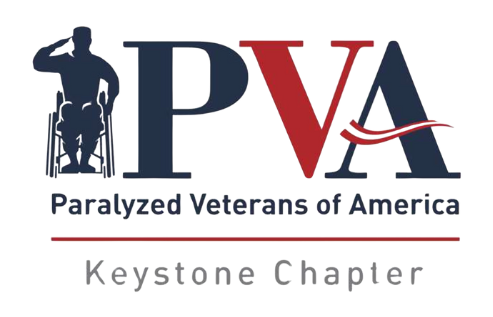Empowering Veterans with Innovation
Explore Cutting-Edge Veteran Support: The ReWalk Exoskeleton and More in The Benefits Box
| LOAN AMMOUNT | MAXIMUN WARRANTY | SPECIAL PROVISONS |
|---|---|---|
| Up to $45,000 | 50 percent of loan amount | 25 percent on interest rate reduction refinancing loans |
| $45,000 – $56,250 | $22,500 | Same as above |
| $56,250 – $144,000 | 40 percent of the loan amount, with a maximum of $36,000 | Same as above |
| $144,000 or more | Up to an amount equal to 25 percent of the county loan limit | Same as above |
THE BENEFITS BOX A service by PVA’s National Service Officers
This Benefits Box has been provided by PVA Health and Benefits Specialist II Charles Tocci, based in PVA’s Syracuse, N.Y. Regional Office.
What is the ReWalk?
The ReWalk is an exoskeleton system that allows individuals with spinal cord injuries (SCI) to sit, stand, turn and walk. We carefully adjust the system specifically for each person and strap it to them. The primary objective of the system is to replicate a person's natural gait in a controlled and independent manner, under the guidance of a trained companion.
The ReWalk Exoskeleton System
As we all fight with technology on a daily basis, the company ReWalk Robotics has produced a new gadget that is changing our members’ lives nationwide. In December, the Food and Drug Administration (FDA) approved the first powered exoskeleton to be issued for personal use, which is called the ReWalk and is quickly gaining popularity.
How can I get a ReWalk?
Although the process is lengthy and entails an involved procedure, the product is not difficult to obtain. There are several ways to initiate the evaluation. First, you can self-refer yourself. Second, your VA provider may contact your SCI Center, and as always, you may reach out to your local National Service Officer (NSO) to assist you in obtaining the ReWalk.
Once a consult has been placed, you must undergo a comprehensive evaluation to see if you meet the criteria. For instance, the ReWalk system requires users to use two canes, making upper extremity strength critical. Numerous other strengths and functions are assessed as well. As you might expect, height and weight are also determining factors, including leg lengths. Some other aspects taken into consideration are bone density, blood pressure while standing, skin integrity, risk of autonomic dysreflexia, and, as previously mentioned, a companion that can actively participate in training and supervise while using the ReWalk at home. Unfortunately, you cannot qualify if you have a diagnosis of a neurological injury other than SCI.
Now we will discuss the fun part, which is the testing process! This part of the process is lengthy. Rigorous testing is conducted because you are literally learning how to walk again. You will need to develop specific skills, such as getting in and out of the system, transitioning from sitting to standing, operating the communicator, and walking at least 10 meters with minimal assistance. After more practice with the device and the certified therapist agrees you are eligible, one may be loaned for home use under supervision for a minimum of 45 days. The SCI Team will then work together to arrange the purchase of the ReWalk system.
For more detailed information concerning the ReWalk system, contact your VA provider or Paralyzed Veterans of America (PVA) NSO.
We Engage With You
VA Home Loan Eligibility and Process
To qualify for a VA home loan, a veteran or the spouse of an active-duty service member must certify that they intend to occupy the home. When refinancing a VA-guaranteed loan to reduce the interest rate, a veteran only needs to certify prior occupancy. The loan must be appraised by a VA-assigned fee appraiser before it can be guaranteed. The requester is responsible for paying the appraisal fee, which is based on the VA-approved fee schedule. The appraisal estimates the property’s value but does not serve as a home inspection or guarantee that the house is free of defects. The VA only guarantees the loan, not the property’s condition.
Closing Costs for VA Purchase Loans
For purchase loans, the veteran must pay all closing costs in cash. This includes the VA appraisal, credit report, loan processing fee, title search, title insurance, recording fees, transfer taxes, survey charges, inspections, hazard insurance premiums, and prepaid taxes. These costs cannot be included in the loan. However, if refinancing a loan, many of these costs can be included as long as the total loan amount doesn’t exceed the property’s reasonable value.
VA Interest Rate Reduction Refinancing Loan (IRRRL)
A VA-guaranteed Interest Rate Reduction Refinancing Loan (IRRRL) allows veterans to refinance an existing VA loan to lower their interest rate and monthly payments. Typically, no credit underwriting is required for this type of loan. The loan can include the entire outstanding balance of the prior loan, energy-efficient improvements, and closing costs, including up to two discount points. If the lender charges discount points, the veteran can negotiate with the seller to determine who will cover the points, or whether they’ll be split. Discount points paid by the veteran cannot be included in the loan, except for up to two points in IRRRLs. The loan term can be up to 30 years and 32 days.
VA Funding Fee
The VA charges a funding fee, which ranges from 0.05% to 2.4%, depending on the type of loan. This fee must be paid to the VA, unless the veteran is exempt. Exemptions include veterans receiving VA disability compensation, those eligible for compensation due to a pre-discharge disability exam, or unmarried surviving spouses of veterans who died in service or from a service-connected disability. The funding fee can be paid in cash or included in the loan. The VA funding fee and up to $6,000 for energy-efficient improvements can also be included in the loan.
Service Periods for VA Loan Eligibility
World War II: Active duty between Sept. 15, 1940, and July 26, 1947, with at least 90 days of service unless discharged early for a service-connected disability.
Post-World War II: Active duty between July 25, 1947, and June 27, 1950, with at least 181 days of continuous service unless discharged early for a service-connected disability.
Korean War: Active duty between June 26, 1950, and Feb. 1, 1955, with at least 90 days of service unless discharged early for a service-connected disability.
Post-Korean War: Active duty between Jan. 31, 1955, and Aug. 5, 1964, with at least 181 days of continuous service unless discharged early for a service-connected disability.
Vietnam War: Active duty between Aug. 4, 1964, and May 8, 1975, with at least 90 days of service unless discharged early for a service-connected disability. For veterans who served in the Republic of Vietnam, the beginning date is Feb. 28, 1961.
Post-Vietnam: Active duty after May 7, 1975, and before Aug. 2, 1990, with at least 181 days of continuous service unless discharged early for a service-connected disability.
24-Month Rule: For service between Sept. 8, 1980 (or Oct. 16, 1981, for officers) and Aug. 1, 1990, veterans must complete 24 months of continuous active duty or at least 181 days for which they were ordered to active duty. Exceptions apply for hardship, government convenience, medical conditions, or service-connected disabilities.
Gulf War: Active duty from Aug. 2, 1990, to the present. Veterans must complete 24 months of continuous active duty or at least 90 days if called to active duty. Exceptions apply for hardship, government convenience, medical conditions, or service-connected disabilities. Reservists and National Guard members activated after Aug. 1, 1990, are eligible if they served at least 90 days and received an honorable discharge.
Active Duty Personnel: Eligible after serving 90 consecutive days until the Gulf War era ends.
Certificate of Eligibility
To obtain a Certificate of Eligibility, complete VA Form 26-1880 (“Request for a Certificate of Eligibility”) and mail it to:
VA Eligibility Center,
P.O. Box 20729,
Winston-Salem, NC 27120.
Once the certificate is received, you can apply for a VA loan.
About Michael J. Kruse
Michael J. Kruse is a U.S. Air Force and Persian Gulf War Veteran. He served as a Tactical Aircraft Maintenance Specialist on the F-15 Fighter, stationed at Holloman AFB, Langley AFB, and King Abdul Aziz Air Base in Saudi Arabia. Mike was honorably discharged in 1994 and later earned a Bachelor of Science in Business Administration from Medaille College and a Paralegal degree from New York Paralegal. He has spent over 12 years assisting veterans with obtaining education, health care, compensation, and pension benefits from the VA. Mike currently serves as the Senior National Service Officer at the Paralyzed Veterans of America office in Buffalo, NY.
VA Loan Default Assistance
If a veteran’s VA home loan becomes delinquent, they should contact their lender immediately to discuss the missed payments and possible repayment options. Depending on the situation, the lender may offer the following:
Repayment Plan: Make regular payments plus part of the overdue amount.
Forbearance: Lender suspends payments temporarily to allow the veteran to accumulate funds.
Loan Modification: The lender adds delinquent payments to the loan balance and establishes a new payment schedule.
Compromise Sale/Short Sale: The lender approves selling the home for less than the loan balance. The VA guaranty may write off or pay the remaining balance.
Deed-in-Lieu of Foreclosure: The lender accepts a deed to the property instead of going through foreclosure.
The VA cannot directly lend to veterans behind on payments, but it offers financial counseling for veterans with VA-guaranteed, conventional, or subprime loans. For VA-guaranteed loans, the VA may intercede with the lender to arrange alternatives to foreclosure.
For additional information, contact your local PVA National Service Officer or call the VA’s toll-free Home Loan Guaranty program at 1-877-827-3702.
FREQUENTLY ASKED QUESTIONS
Have questions? We're here to help!
get in touch
PVA National Service Offices:
Pittsburgh: 412-395-6255, 800-795-3629
Philadelphia:
215-381-3057, 800-795-3628
Volunteer and Donation Inquiries:
Agnes Strang (Volunteer Coordinator):
412-781-2474 or 800-775-9323
Key Programs & Projects Needing Support
Wheelchair Sports & Recreation: Funding to send athletes to national games.
Facility Upgrades: Expanding space for wheelchair-accessible vehicles.
Veteran Care Programs: Supporting veterans through special projects like
Easter Bags for Hospitalized Vets.
Financial Transparency
Keystone PVA is a 501(c)(3) nonprofit organization, ensuring that all donations are used effectively. An annual audit is conducted by an independent third party, and financial reports are submitted to the IRS to ensure transparency.

